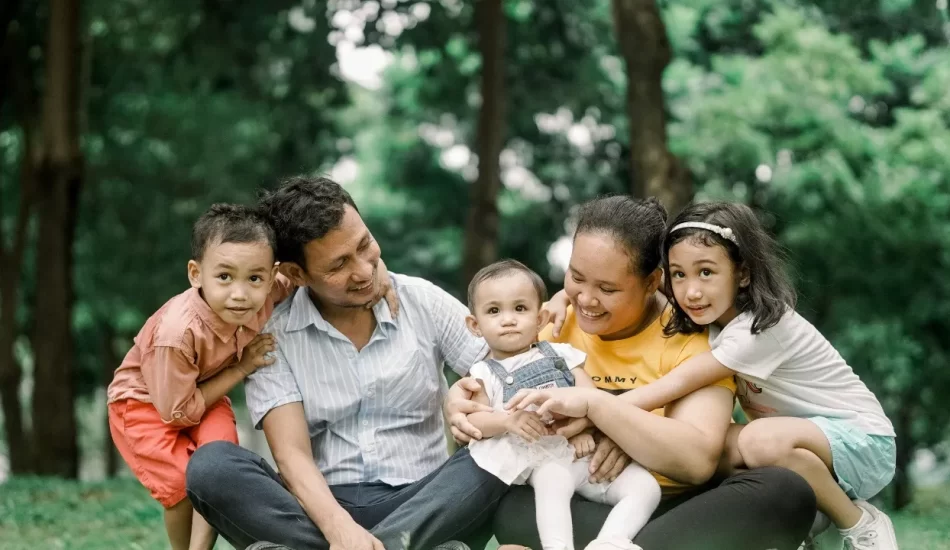A Guide to the F3 Visa for Family Reunification in the USA

Understanding the F3 Visa: A Path Towards Family Reconfiguration
Under the third preference category, is the family-based immigration visa known as the F3 Visa. It lets American citizens sponsor their married children and their families to live permanently here. Reunited families depend on this visa to allow loved ones to follow their sponsors in the United States legally.
What is the F3 Visa?
Designed for married sons and daughters of U.S. citizens, including their wives and minor children, the F3 Visa. The F3 category allows extended family members to immigrate to the United States, therefore enabling families to remain together under the family-based immigration system.
F3 Visa Category and Eligibility
Applications for the F3 Visa have to satisfy particular requirements:
- The petitioner needs to be a US citizen.
- The applicant must be the married son or daughter of the U.S. citizen petitioner.
- The petition may include the applicant’s young children and spouse.
Unlike other visa types, such as the F1 Visa (for unmarried sons and daughters of U.S. citizens) and the F2B Visa, this one is unique.
F3 Category Visa Waiting Time

The waiting time for the F3 visa presents one of the main difficulties. Annual restrictions on the amount of visas given in this category mean that applicants sometimes experience long delays. The applicant’s nation of origin and the present demand will greatly affect the F3 visa waiting time. The F3 visa wait time as per the most recent statistics can be several years; some cases span more than a decade.
The F3 Visa Application Process
The procedure starts when a U.S. citizen petitioner files a Form I-130, Petition for Alien Relative with U.S. Citizenship and Immigration Services (USCIS). The form must include evidence of the petitioner’s U.S. citizenship as well as the family’s link.
Step 1: Filing the I-130 Petition
The qualifying relationship between the petitioner and the beneficiary is documented in the I-130 petition. USCIS will assess the application following submission and provide a notification of receipt. This is the initial phase of a possibly long procedure, hence it is important to make sure that the documentation is accurate and complete to prevent delays.
Step 2: Approval and Priority Date
The case is given a priority date once the I-130 petition is approved, therefore guiding the visa processing sequence. The priority date is important since it places the application under the annual cap for visa availability.
Step 3: National Visa Center (NVC) Processing
After approval, the case goes to the National Visa Center (NVC), in charge of the next phase of the process. To show that the petitioner can afford the immigrant, the NVC will demand more records including the Affidavit of Support (Form I-864). Although the NVC processing dates vary, delays are somewhat usual, particularly in cases of supplementary paperwork requests.
Step 4: Visa Interview

The NVC arranges a visa interview at the U.S. embassy or consulate in the beneficiary’s native country once the priority date is current. To be eligible for the visa, candidates must show original documentation, undergo a medical check, and answer questions during the interview.
Challenges and Consideration
The application process for the F3 Visa can be time-consuming and complex; numerous elements might influence the duration:
- Annual Visa Limits: There are only F3 category visas available, which causes notable delays since their annual count is limited.
- Document Requirements: If documentation is inaccurate or lacking, strict documentation requirements can cause processing delays.
- Changing Immigration Policies: Changing immigration laws in the United States will influence processing timelines and requirements.
F3 Visa Processing Time
Often spanning many years from the filing of the I-130 petition to the final issuance of the visa, the F3 visa processing time can be long. This timeline includes USCIS’s initial processing, waiting for a visa number to become available, and finishing the NVC and consular processing phases.
The Importance of Accurate Documentation for the F3 Visa Application

Applying for the F3 Visa requires accurate documents. To guarantee that all qualifying criteria are satisfied and to confirm the link between the petitioner and the beneficiary, the U.S. immigration system requires complete records. Missing or inaccurate paperwork could cause delays or perhaps visa denial.
Key Documents Needed for the F3 Visa Application:
- Proof of U.S. Citizenship: The petitioner has to show proof of their U.S. citizenship, including a citizenship certificate, birth certificate, or passport.
- Proof of Relationship: Birth certificates, marriage certificates, and other legal records establishing the familial link between the petitioner and the beneficiary constitute proof of family.
- Marriage Certificate: Verify marital status using the marriage certificate since the F3 visa is for married children of U.S. citizens.
- Affidavit of Support (Form I-864): This form, Form I-864, is required to prove that the petitioner can financially sustain the beneficiary and stop them from becoming a public charge.
- Police Certificates and Medical Examination: Standard conditions for all candidates for immigrant visas are police certificates and medical exams, which guarantee they do not endanger public safety or health.
The Role of the National Visa Centre (NVC)
The later phases of the F3 visa application depend critically on the NVC. Once the priority date is current, the NVC will arrange the visa interview and ask for further evidence. To prevent delays, this phase requires careful attention to detail and quick responses to NVC instructions.
Completing the DS-260 Form
Completed by the beneficiary, the DS-260 form is an online immigrant visa application. This form comprises personal details, specifics on past U.S. travels, and family history information for the beneficiary. The success of the application depends on the accurate completion of the DS-260.
Families Reunification and the Importance of Legal Assistance

Dealing with the complexity of the F3 visa application requires both strict respect for immigration rules and great attention to detail. Legal help may be quite helpful in making sure deadlines are fulfilled, all paperwork and documentation are accurately submitted, and candidates are ready for their visa interviews.
Passage Law helps families reconnect in the United States by providing professional advice and support through the F3 visa application process. Our seasoned immigration lawyers are here to handle all facets of your visa application, respond to your inquiries, and offer strategic recommendations.
Ready for Bringing Families Together in The USA
Designed to join families and give married offspring of U.S. citizens a path to live and work in the United States, the F3 Visa is an essential part of the U.S. immigration system. Although the process can be time-consuming and difficult, consulting an expert will help to greatly simplify the path.
Passage Law can assist you with a current application or applying for an F3 visa and needs assistance. Our group of experienced immigration lawyers is dedicated to guiding families through the complexity of the immigration application. To arrange a consultation, contact us now or visit Passage Law. Allow us to assist you in reuniting your family here in the United States.
